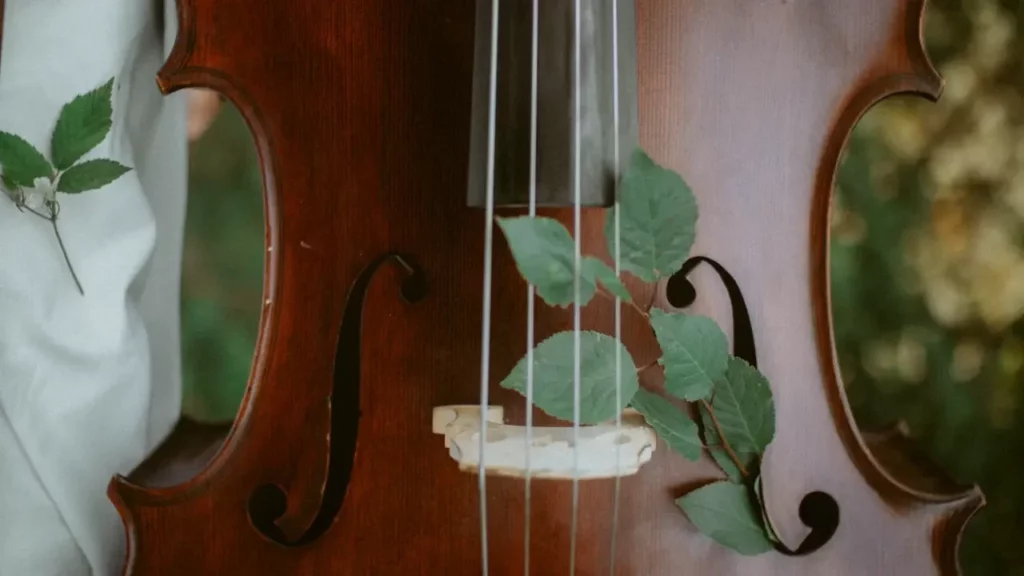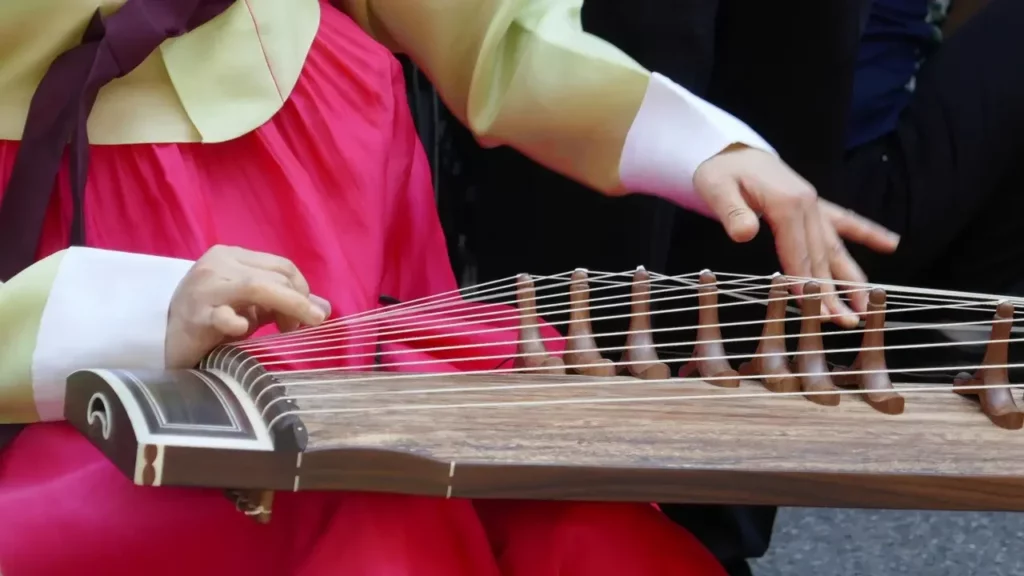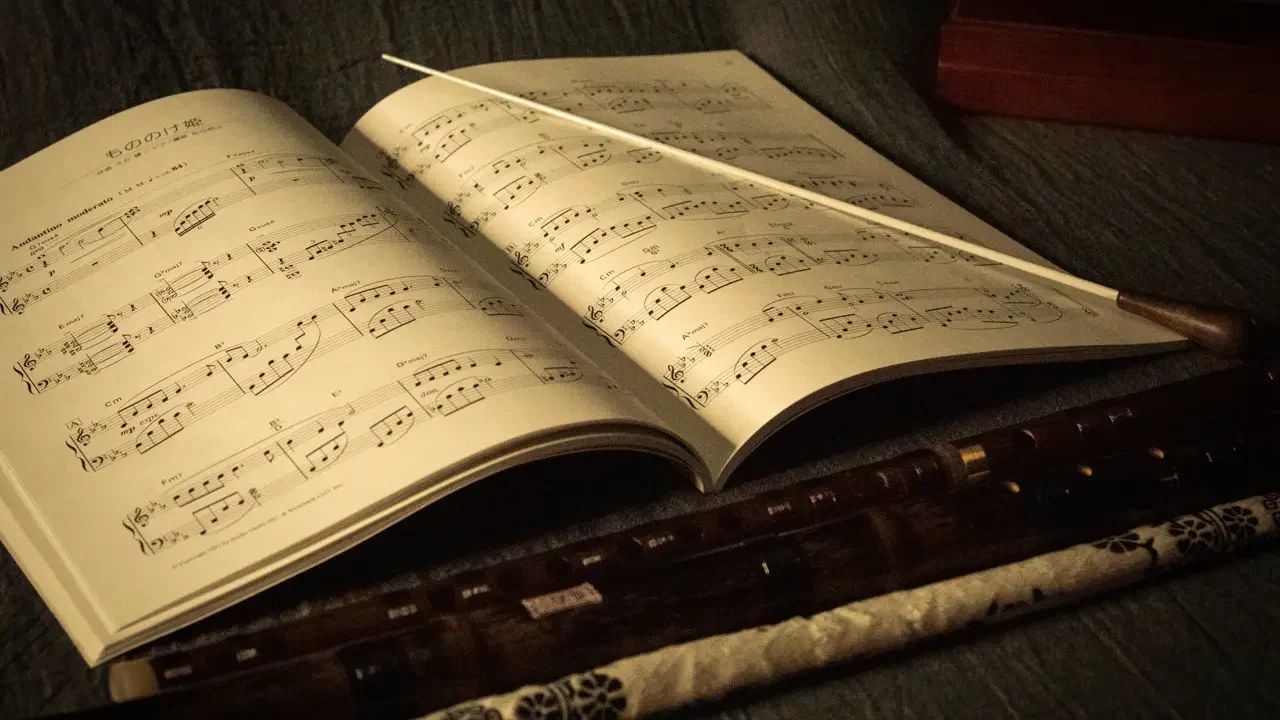Fantasy music transforms you the moment it begins. A harp's crystalline notes, a wooden flutes's melodies, and voices echoing from ancient temples. Within seconds, you're transported from your living room to an enchanted realm.
Composers use specific instruments, scales, and techniques that influence our psychological responses. They exploit our auditory associations with adventure, mystery, and wonder. Results often feel supernatural, but the methods are rooted in culture and science.
This article explores how fantasy music creates its atmosphere, why your brain responds to these melodies, and what you should listen for in your favorite fantasy soundtracks.
Ancient Scales and Deep Emotions in Fantasy Music

Fantasy music's power lies in scales that avoid the familiar major and minor keys you hear in pop music. Instead, fantasy composers reach back to medieval modes that create emotional ambiguity and mystery.
Dorian mode serves as the heart of fantasy music. Think of it as a minor scale with a twist—it has this bittersweet quality that feels both sad and hopeful at the same time. Popular examples include Halo's main theme or Skyrim's "Dragonborn" that builds that signature ethereal, mystical feeling.
Pentatonic scales provide the universal language for fantasy music. These five-note patterns appear in folk music from Scotland to China, and archaeological evidence shows bone flutes from 40,000 years ago used these same scales. Pentatonic scales sound "ancient" because they literally are ancient. They avoid the tension half-steps of modern music, resulting in harmonious sounds that feel timeless.
Other medieval modes add distinct colors to fantasy music. Phrygian mode creates mystery through its flattened second note—listen to how it appears in Middle Eastern-influenced fantasy scores. Mixolydian mode sounds like a major key but with folk-like quality that suggests pastoral settings and simpler times.
Open fifths and fourths complete fantasy's harmonic signature. These mathematically pure intervals sound naturally consonant to human ears. Unlike major and minor thirds that create emotional certainty, open intervals leave harmonic space unfilled, suggesting vast landscapes and timeless wonder.
Organic Instruments Shape Fantasy Music's Authenticity

Fantasy music relies on organic, acoustic instruments while science fiction embraces electronic sounds. This fundamental divide shapes how each genre creates its atmosphere. Fantasy composers choose wood, metal, and strings that resonate naturally.
- Celtic harps exemplify an organic approach through sympathetic vibration—when you pluck one string, nearby strings hum along on their own. This creates crystalline overtones that seem to come from multiple sources simultaneously.
- Wooden flutes add warmth through their hollow, breathy timbre that metal instruments cannot match. Wood's resonance absorbs and releases frequencies in ways our brains interpret as "human" and "natural." Fantasy composers often layer flutes to create an effect of wind through forests.
- String sections in fantasy music use techniques that emphasize their nature. Sul ponticello (bowing near the bridge) creates ethereal, glassy textures. Tremolo passages suggest rustling leaves or shimmering water. These techniques make acoustic instruments sound magical without electronic processing.
- Choral arrangements using wordless vocals create sacred, ritual-like atmospheres through pure vowel sounds that resonate naturally in the human body. The technique dates back to Gregorian chant but finds new life in fantasy music where ancient spiritual associations enhance magical storytelling.
For tabletop gaming, this organic emphasis matters a lot. Fantasy campaigns benefit from authentic loops that won't distract players. Professional audio platforms understand this challenge, offering curated collections that maintain acoustic authenticity while providing seamless looping for extended gameplay sessions.
How Fantasy Music Differs From Other Epic Genres

Fantasy music creates universal emotions while historical epics aim for period accuracy. Historical films like "Gladiator" or "Braveheart" use instruments and musical styles appropriate to their specific time periods. Fantasy composers have complete creative freedom, blending Celtic harps with Nordic vocals and Eastern percussion to serve storytelling and worldbuilding rather than historicity.
This freedom allows fantasy music to tap into archetypal themes—good versus evil, heroism, magic—that resonate across cultures. A fantasy score can combine Scottish bagpipes with Byzantine chants and Japanese flutes if it serves the narrative. Historical accuracy becomes less important than emotional authenticity.
Science fiction music takes the opposite approach, deliberately using synthesizers and electronic effects to suggest technological advancement. Where fantasy evokes ancient traditions, sci-fi represents futures where machines dominate. The theremin in "The Day the Earth Stood Still" and Vangelis' "Blade Runner" score exemplify how electronic instruments create "alien" or "high-tech" atmospheres impossible with organic instruments.
Action and adventure scores prioritize percussion and rhythm and to match physical movement. Fantasy prioritizes atmosphere and immersion over adrenaline. Even combat music in fantasy maintains harmonic and melodic content over intensity.
Strategic use of silence distinguishes fantasy music from other epic genres. Fantasy composers understand that magical moments require musical restraint. Sparse instrumentation creates anticipation, contrasting with superhero films or war epics that maintain constant musical energy.
Many online tools highlight these differences, since fantasy campaigns need music supporting long periods of exploration, dialogue, and problem-solving. Specialized audio libraries categorize tracks by adventure type, biome, mood, etc. rather than simply "calm" or "combat."
The Psychology Behind Fantasy Music

Fantasy music triggers psychological responses because it connects to our oldest musical traditions. Pentatonic scales appear in 40,000-year-old bone flutes, suggesting these patterns are hardwired into our musical perception. When you hear these intervals, your brain recognizes something timeless.
The mathematical relationships in fantasy music create natural resonance that your ears perceive as pure or stable. Perfect fifths and fourths have simple frequency ratios (3:2 and 4:3) that appear in natural overtone series. Your brain processes these as acoustically "correct," triggering feelings of stability and wonder.
Cultural associations amplify these acoustic effects. Medieval modes connect to centuries of sacred music, folk traditions, and storytelling customs. Your mind links these sounds to collective memories of spirituality and pre-industrial life. Even listeners unfamiliar with medieval music feel these associations through exposure to fantasy games and movies.
Organic textures in fantasy music mirror natural soundscapes in ways that trigger subconscious relaxation responses. Flutes sound like wind through trees and harps echo like droplets in caves. These acoustic similarities to nature activate the same neural pathways as actual natural environments, creating a calmness ideal for the imaginary.
Harmonic ambiguity in fantasy music creates sustained emotional engagement through subtle uncertainty. Unlike pop music's predictable chord progressions, modal harmony keeps your brain guessing—without creating anxiety. This balance between feels magical because it maintains attention while avoiding stress.
For gamemasters (GMs), understanding these triggers explains why music choice is so important for immersion. Players respond to authentic fantasy because emotional and sensory systems activate simultaneously. Quality audio platforms apply this by curating collections that leverage these natural responses rather than fighting against them with inappropriate musical choices.
The Continuing Evolution of Fantasy Music

Fantasy music continues evolving while maintaining its core principles. Composers integrate world music traditions more authentically, using actual cultural instruments recorded by native performers. Digital technology allows for more sophisticated layering of organic sounds, creating richer textures while preserving authenticity.
The future of fantasy music lies in embracing new technologies and cultural perspectives while honoring the principles that make fantasy music feel... fantasy. Whether you're a composer, gamemaster or simply a fantasy music fan, understanding these foundations will deepen your appreciation for this remarkable musical tradition.
Fantasy music works its magic through deliberate choices: traditional scales, organic instruments, and cultural associations that tap into collective memory. The next time you hear that distinctive fantasy sound, you'll recognize the sophisticated craft behind the magic.


